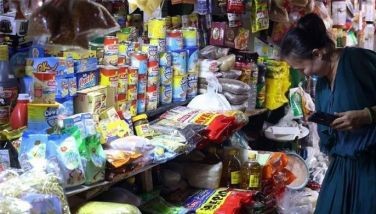Increased gov’t procurement of medicines pushed

Citing data from the Philippine Statistics Authority, PIDS said expenditure for medicines now accounts for 50 percent of the total health care spending in the country. Steve Buissinne/File
MANILA, Philippines — State-run think tank Philippine Institute for Development Studies (PIDS) is urging the government to expand the pooled procurement of medicines and provide incentives to local government units that invest more on primary health care with medicines as an integral part of the program to drive down the cost of drugs in the country.
In a new policy note, the policy research institution said access to quality health care without incurring financial hardship continues to be an aspiration for many Filipinos because of the high out-of-pocket costs associated with treatment.
This is despite the enactment of the Cheaper Medicines Act of 2008, it said.
Citing data from the Philippine Statistics Authority, PIDS said expenditure for medicines now accounts for 50 percent of the total health care spending in the country.
“This makes the weak access of the population to medicines a key problem in achieving universal healthcare. A chronic and debilitating illness hitting a middle or lower income family can be its ticket to join the ranks of the poor, particularly if the main income earner becomes the affected member,” said the policy note.
PIDS said the government currently implements measures to improve medicine access such as promotion of generic drugs, public sector importation of cheaper medicines, enforcing price caps on certain drugs, establishment of village pharmacies, as well as centralization of the procurement of medicines for public hospitals and clinics.
These efforts, however, were insufficient to enable the poor to buy the number and quality of drugs needed to cure or control their illnesses.
The policy note said a medicine is considered unaffordable if the cost of its treatment pack is no more than the day’s salary of the lowest government worker. As it is, 32 treatment packs sold in the country are considered unaffordable.
To address this, PIDS recommends “deepening the local medicine market” to spur competition and lower prices.
This entails expanding the government’s purchasing capacity for cheaper medicines to attract more suppliers in the market.
“Given that the government is the stakeholder that can effectively bring up the purchasing capacity, it should expand the pooled procurement of medicines to attract more suppliers in the market. Such action gives the public sector leverage in getting medicines prices further down. The government can then distribute the medicines it procures to the poorest population who do not even have the purchasing power to acquire medicines even at reduced prices,” said PIDS.
The think tank also proposed providing for medicine allocation in case rate of the Philippine Health Insurance Corp. as well as extending its coverage to outpatient medicine prescriptions first in public health facilities and eventually in accredited private sector drug outlets.
It likewise urged the provision of incentives to local government units that would invest more in primary health care with the provision of medicines as an integral part of the program.
- Latest
- Trending

































